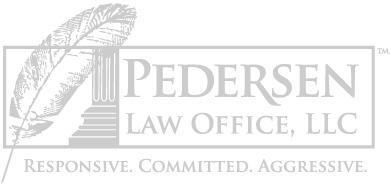How to Stop Wage Garnishment In Wisconsin
Oct 26, 2016

You received court papers in the mail because a creditor is suing you over an outstanding bill. You don’t dispute the fact that you owe the money, you just don’t have the money to pay the bill. At the court hearing a money judgment is granted. Now that the creditor has a money judgment against you, they will try to collect on that judgment by garnishing your wages. If money was tight before, just imagine how much more difficult it will be to pay your monthly bills when your wages start to get garnished.
What is a Wage Garnishment?
A wage garnishment is an order from the court sent to your employer requiring them to withhold money from your paycheck to pay towards the judgment. Most creditors are required to obtain a money judgment against you before they are able to garnish your wages in less the debt is for unpaid income taxes, court order child support, or defaulted student loans. In the State of Wisconsin, 20% of your disposable earnings can be garnished and continue for 13 weeks; unless you can show you are exempted from garnishment.
Am I Exempt from Wage Garnishment?
You may be able to protect your income from garnishment if any of the following apply.
- If your income is below the poverty guidelines or you are able to show that your income would fall below the property guidelines if they allow the garnishment.
- If you receive any state assistance, such as badger care or food share.
- If your only income is social security or social security disability then your income is not able to be garnished.
- Bankruptcy or a Section 128 can also protect your wages from being garnished.
Section 128
If you are not able to protect your wages from garnishment, you may want to look into a Chapter 128. A Section 128 or Chapter 128 is a debt repayment program that can be up to 36 months and is at 0% interest. You can pick and choose what debts to include. A Section 128 will stop any garnishment or future garnishment for the creditors listed in your Chapter 128 repayment plan. A Section 128 is a great option to stop garnishment if you are dealing with one creditor or a small amount of debt and have a steady income source.
Bankruptcy
A Chapter 7 bankruptcy can also stop any garnishment against you but, unlike a Chapter 128, all of your creditors are listed in a bankruptcy. If the amount of debt you are facing is more than you would be able to repay during a 36 month Chapter 128, then a bankruptcy could provide protection from garnishment and wipe out all the unsecured debt you are facing. A Chapter 7 bankruptcy is a great option to stop garnishment if you are dealing with several creditors and a large amount of debt, no steady income source is necessary for a Chapter 7 Bankruptcy.
Free Consultation
Pedersen Law Office, LLC offers free consults in all of our areas of practice and will meet with you personally to discuss your specific circumstances and see what options are available for you. Our law office serves the communities of Appleton, Neenah, Menasha, Oshkosh, Green Bay and their surrounding areas.